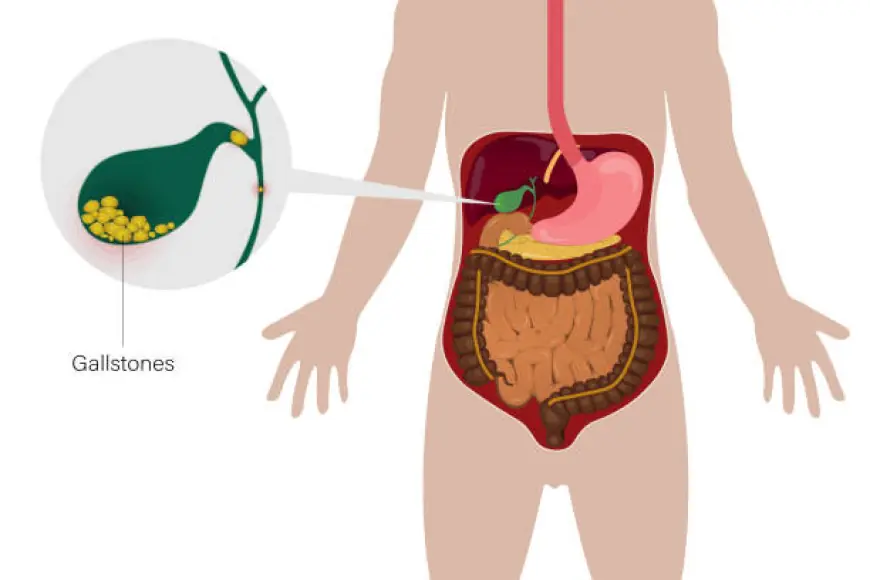Gallstones Singapore: Early Diagnosis and Prevention Tips
Gallstones Singapore: Early Diagnosis and Prevention Tips

Gallstones are a common yet often overlooked digestive health concern. For individuals searching for reliable care and information on gallstones Singapore, early diagnosis and preventive measures can make a significant difference in avoiding serious complications. At ALPS CLINIC, we are committed to helping patients detect gallstones early and take proactive steps to protect their digestive health.
Understanding Gallstones and Their Impact
Gallstones are hardened deposits that form inside the gallbladder — a small organ located beneath the liver. These stones are often made up of cholesterol, bile pigments, or a mixture of substances. While some gallstones remain silent and cause no symptoms, others can trigger intense pain and require medical intervention.
When gallstones block bile flow, they can lead to:
- Gallbladder inflammation (cholecystitis)
- Bile duct obstruction (choledocholithiasis)
- Pancreatitis (inflammation of the pancreas)
The pain caused by gallstones, often called a gallbladder attack, can be sudden and severe, typically in the upper right abdomen. The discomfort may last from minutes to hours and can be accompanied by nausea, vomiting, and indigestion.
Gallstones Singapore: Early Signs to Watch For
Recognizing symptoms early is key to timely treatment. Common warning signs of gallstones Singapore cases include:
- Persistent pain in the upper right or middle abdomen
- Nausea or vomiting, especially after eating fatty meals
- Indigestion, bloating, or excessive belching
- Fever or chills (in cases of infection)
- Jaundice — yellowing of the skin or eyes
Even mild symptoms should not be ignored. At ALPS CLINIC, our specialists recommend seeking prompt evaluation to confirm whether gallstones are the cause and to prevent future complications.
Why Early Diagnosis Matters
Gallstones can worsen over time, leading to emergency situations if left untreated. The benefits of early detection include:
- Preventing serious infections and complications
- Avoiding urgent surgery due to sudden blockages
- Reducing long-term treatment costs
- Allowing for more treatment options, including non-surgical approaches
At ALPS CLINIC, we offer detailed diagnostic imaging, such as ultrasound scans, alongside comprehensive blood tests to identify gallstones and assess overall gallbladder health.
Gallstones Singapore: Prevention Strategies
Although gallstones can’t always be avoided, certain lifestyle adjustments can significantly reduce your risk. The medical team at ALPS CLINIC suggests the following preventive steps:
1. Maintain a Healthy Weight
Excess body weight increases cholesterol levels in bile, which can lead to stone formation. However, rapid weight loss can also increase gallstone risk, so aim for gradual, sustainable weight management.
2. Eat a Balanced Diet
Incorporate fiber-rich foods like vegetables, fruits, and whole grains. Limit high-fat, fried, and processed foods that can disrupt bile balance. Lean proteins and healthy fats, such as olive oil and nuts, can support healthy digestion.
3. Stay Hydrated
Adequate water intake ensures proper bile flow and prevents bile from becoming too concentrated.
4. Exercise Regularly
A minimum of 150 minutes of moderate activity per week helps regulate digestion, supports weight control, and reduces the risk of gallstone formation.
Who Is at Higher Risk?
Certain groups are more likely to develop gallstones:
- Women, especially those who are pregnant or using hormone therapy
- People over 40 years old
- Individuals with a family history of gallstones
- Those with high cholesterol or a high-fat diet
- People with rapid weight fluctuations or obesity
If you fall into any of these categories, regular check-ups at ALPS CLINIC can help detect gallstones before they cause problems.
Treatment Options at ALPS CLINIC
Treatment for gallstones depends on the severity of symptoms and the size or number of stones. At ALPS CLINIC, our patient-centred approach includes:
- Watchful Waiting — For small, symptom-free gallstones, monitoring with regular check-ups may be recommended.
- Medication — Certain oral medications can dissolve cholesterol-based gallstones, though this is a slower process and not suitable for everyone.
- Minimally Invasive Surgery — Laparoscopic cholecystectomy is a safe and effective method for removing the gallbladder when gallstones cause recurring symptoms or complications.
We focus on minimizing downtime and ensuring patients return to normal activities as quickly as possible.
Gallstones Singapore: Take Control of Your Digestive Health
Gallstones may be common, but they don’t have to impact your quality of life. With early diagnosis and preventive care, you can reduce your risk and avoid complications. ALPS CLINIC offers advanced diagnostic tools, expert medical advice, and tailored treatment plans to ensure you receive the best possible care.
If you suspect symptoms or belong to a high-risk group, schedule your consultation today. Your digestive health is worth protecting — and when it comes to gallstones Singapore, early action is the smartest choice.
FAQs on Gallstones
1. What causes gallstones?
Gallstones form when bile contains too much cholesterol, bile salts, or bilirubin, or when the gallbladder doesn’t empty properly.
2. Can gallstones go away without treatment?
Some small, asymptomatic gallstones may remain without causing problems, but painful or problematic stones often require medical treatment.
3. Are gallstones more common in women?
Yes. Hormonal factors, pregnancy, and certain birth control pills increase the risk in women.
4. How can I prevent gallstones naturally?
Eat a balanced diet, maintain a healthy weight, stay active, and avoid rapid weight loss.
5. When should I see a doctor for gallstones?
Seek medical care if you experience severe abdominal pain, fever, jaundice, or persistent nausea.
What's Your Reaction?
 Like
0
Like
0
 Dislike
0
Dislike
0
 Love
0
Love
0
 Funny
0
Funny
0
 Angry
0
Angry
0
 Sad
0
Sad
0
 Wow
0
Wow
0
















































